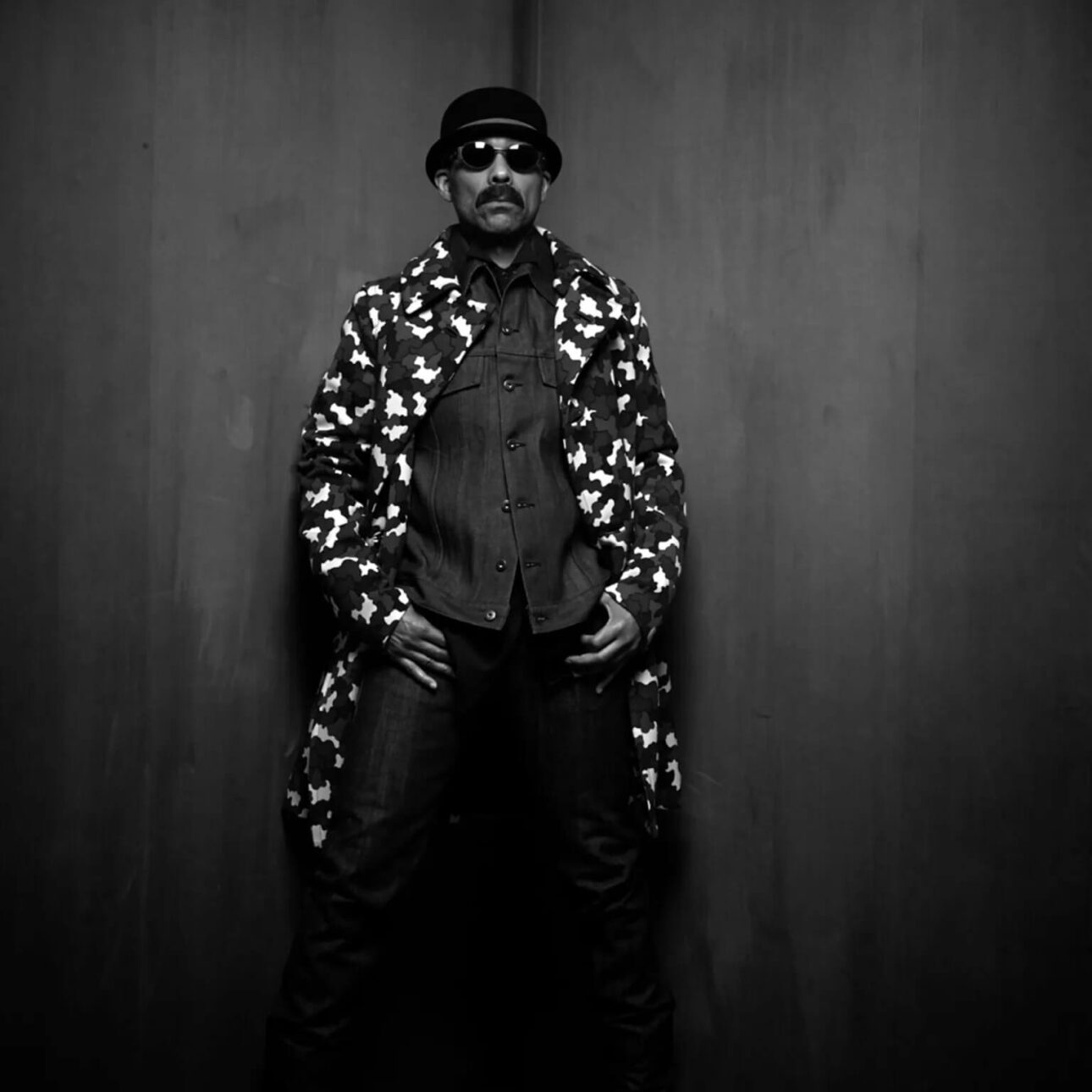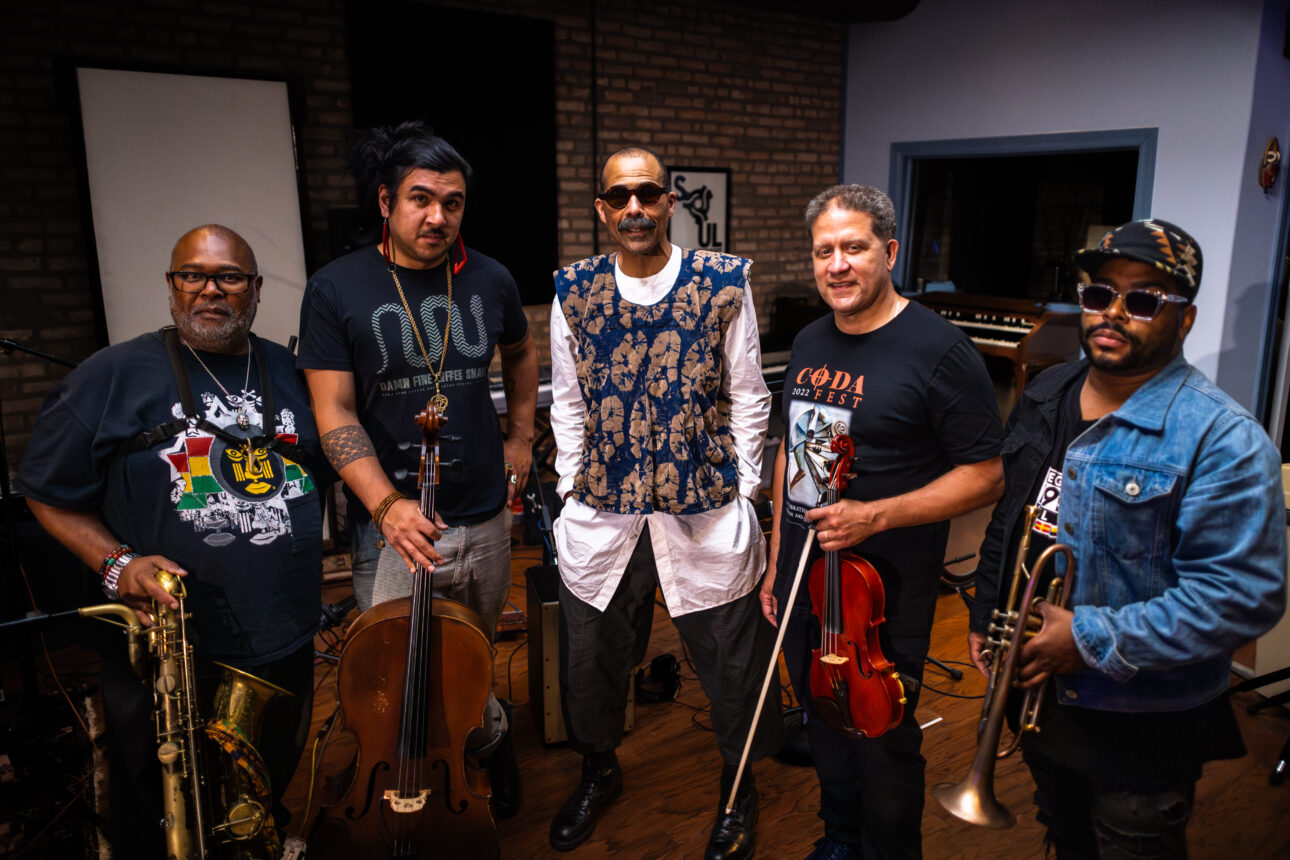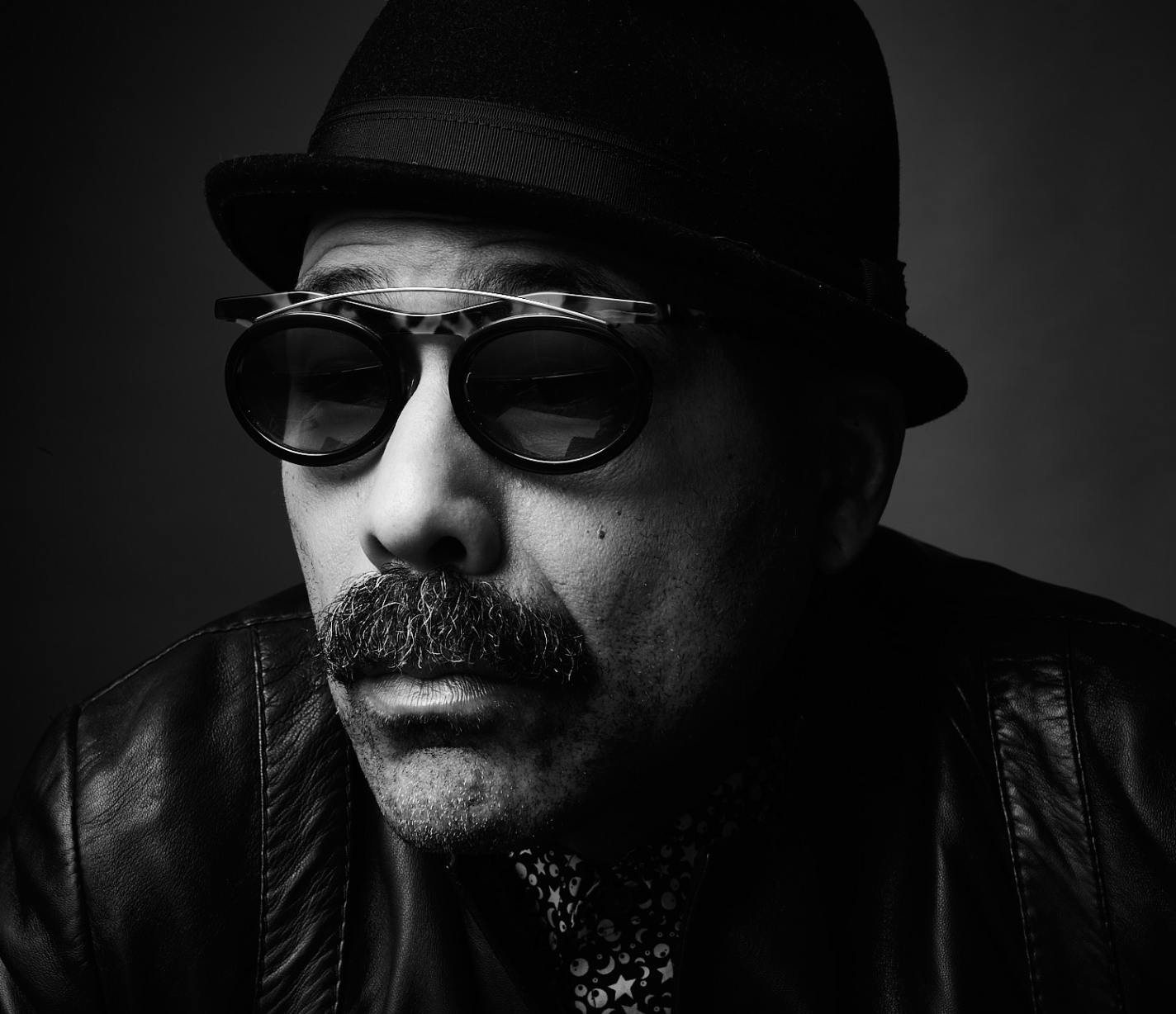Kahil El’Zabar, born Clifton Blackburn in Chicago in 1953, has performed alongside Dizzy Gillespie, Stevie Wonder, Nina Simone, Paul Simon, and Cannonball Adderley, among many others. He’s a founding board member of the National Campaign for Freedom of Expression and was knighted by the French, receiving the Chevalier Medal of Letters in 2014. And yet, somehow, he has largely been overlooked in Black music.
He crossed the globe for his influences, but much of his musical exploration began at home. Now 70, the multi-percussionist and composer recounts the countless artists he was surrounded by growing up in Chatham, an upper-middle-class neighborhood on the South Side.

“I went to Mount Carmel Baptist Church, and our music director was Ramsey Lewis,” says Kahil. “I lived on 84th and Wabash, and one block over was Michigan. Right at the corner was this huge house of Mahalia Jackson’s—I shoveled her snow from 10 years old till about 15. My roller skating partner was Natalie Cole. I grew up with Jerry Butler, Ramsey Lewis, and Curtis Mayfield. The bass player in my first band was Hassan Khan [briefly married to another Chicagoan, Chaka Khan].”
In 1973, El’Zabar spent his final college year in Ghana as part of a student exchange program. While still in high school, he had been among the first group to come out of the Association for the Advancement of Creative Musicians (AACM), which was formed to sustain the life of jazz and its musical offspring, especially amid the shifting trends of late ‘60s popular music, particularly the explosion of rock ‘n roll.
In 1975, he was appointed chairman of the AACM. “They thought I could take the organization to its next direction,” he says. “And from ‘75 to ‘83, I tried to serve well. Under my chairmanship, the first major National Endowment for the Arts (NEA) grants came. We moved our grassroots neighborhood festivals to big exhibition centers like McCormick Place and the Conrad Hilton Hotel.”

Over the past five decades, Kahil eschewed the traditional jazz ensemble in favor of groups comprising mainly percussion, horns, and reeds. The result was a distinctive sound he honed, with his main bands Ethnic Heritage Ensemble and Ritual Trio—a sound that is equally harmonic and melodic as it is layered with complex rhythms, and which has been called “spiritual” or “improvisational.” But that doesn’t sufficiently capture it. It’s multidimensional, multidirectional, evocative, and progressive. It is ubiquitous and sparse, divine and secular.
Simply put, it is Black music in its purest state.
Kahil El’Zabar has recorded over 30 albums in 50 years, as leader of the Ethnic Heritage Ensemble and including his Ritual Trio and Quartet groups. El’Zabar—with the Ethnic Heritage Ensemble—released his latest effort, Open Me, A Higher Consciousness of Sound and Spirit, earlier this month.
Here’s a primer from his massive output to get you started…
On this album, recorded in 1982 at the Finnvox Studios in Finland, El’Zabar is accompanied by two longtime collaborators (and fellow AACM musicians): reedists Kalaparusha Maurice McIntyre and Edward Wilkerson. The opening notes of “One Love, One People (Slowly, But Surely)” are immediately evocative of “Late in the Evening” by Paul Simon, another of El’Zabar’s collaborators. The percussive loop is, notably, the heart of the song. “The Search Inside” shifts the album’s mood from contemplative to heady as El’Zabar switches to a drum kit, with McIntyre and Wilkerson on reeds, relaying the melody in unison before tackling their unbridled solos.
Released under the name Ritual Trio, this album was an homage to late drummer Steve McCall, co-founder of the AACM. Recorded live in 1989 during the Leverkusen Jazztage festival in Germany, it features two more AACM alums, reedist Ari Brown and bassist Malachi Favors, with El’Zabar contributing percussion and vocals. The kalimba is both melodic and rhythmic, especially prominent against Favors’ steady bass line and Brown’s ethereal flourishes, which almost feel more like a flute than a saxophone. Unlike Welcome, Alika Rising envelops into discordant notes, notably punctuated by Brown’s turn on piano.
Kahil El’Zabar’s Ritual Trio Featuring Pharoah Sanders – Ooh Live!
Ari Brown on piano and reeds, with bassist Malachi Favors, once again round out The Ritual Trio for this epic performance. Captured live at Chicago’s Hot House jazz club in 2000, it wasn’t released until eight years later.
You immediately become spellbound by their take on “Autumn Leaves.” Originally penned by composer Joseph Kosma, it becomes a nearly pastoral experience as the trio transforms the first three minutes of the popular standard into a palpable blues. The late Pharoah Sanders, the trio’s featured guest artist, opens “In the Land of Ooh!.” An original El’Zabar composition, it positions Sanders’ blazing tenor sax out front while paying homage to one of the last progenitors of free jazz.
Kahil El’Zabar’s America the Beautiful
A reworking of a national anthem is filled with emotional ambiguity, especially depending on who is performing it. Case in point, and perhaps the most renowned cover, is Ray Charles’ blues- and gospel-tinged take in 1976. While you can appreciate the inherent beauty that Charles brings out, it’s hard not to think about the fractured history of Black people in this country. “America the Beautiful” lends El’Zabar the opportunity to address that caustic irony. His statements become emboldened and resonant with superimposed lush blues harmonies and rhythmic percussion. Releasing this in 2020 was an intrepid choice, especially at the height of the pandemic, but more pointedly, the epicenter of Black Lives Matter.
While America the Beautiful draws from the ravages of a global pandemic and a seemingly endless open season on Black people, A Time for Healing countervails that. Released in 2022, the album rightly positions El’Zabar as a musical sage, and the title track serves to give us hope for the future. Rounding out his quartet are some of Chicago’s rising jazz stars, including trumpeter Corey Wilkes, keyboardist Justin Dillard, and multi-reedist Isaiah Collier, all of whom Kahil has mentored over the years. Grounded by El’Zabar’s abundance of percussion and vocal prowess, this quartet renders a profoundly soulful incantation.




